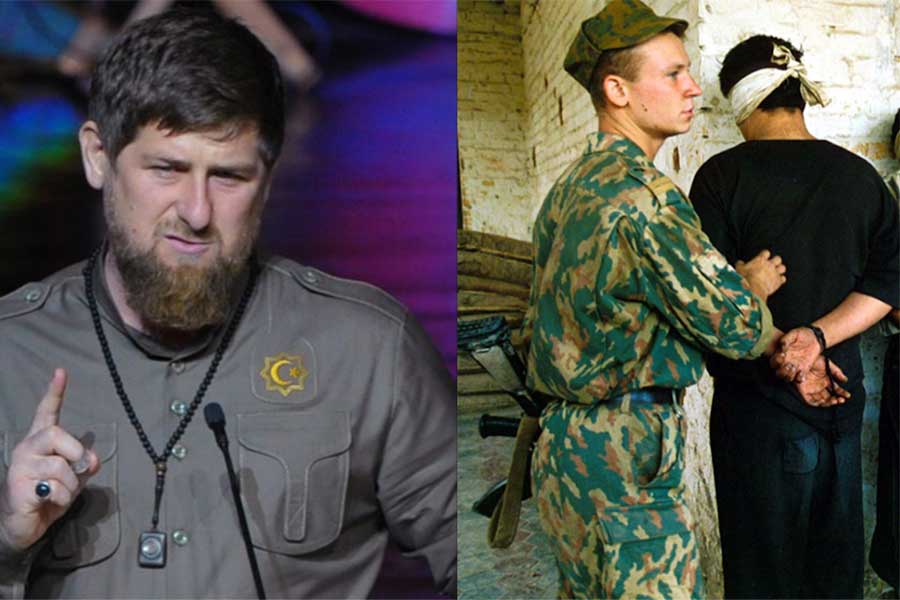There’s a common phrase that occurs when we inform ourselves about the Holocaust, typically after one has left a museum or watched a documentary: “May we never forget,” in reference to the institutional mass murder of marginalized people.
Ramzan Kadyrov, head of the Chechen Republican, has forgotten, or he simply doesn’t care, as he is committing similar atrocities against the same kind of people that Adolf Hitler targeted. This will surprise no one who has followed the news over the last year, particularly on LGBT-themed news sites like Advocate, Huffpost Queer Voices, etc.; however, in the reporting of the tragedy and horror, there hasn’t been much said about what people can do to help.
One thing we often ask ourselves about the Holocaust is, If I were there, what would I have done? Well, you are currently living in one. It’s not in your own country but it is happening to people like you. I wish to both inform the audience about the extent of the crisis at hand and share what you can do to help those suffering right now.
First, it seems best to provide a reminder about what has happened and is happening in Chechnya. Kadyrov has reportedly been rounding up gay men in Chechnya and imprisoning them in concentration camps, murdering many of them. Despite denials from Kadyrov, there have been numerous reports about the practice, which piles onto Kadyrov’s multiple accusations of human-rights abuses. Kadyrov even goes so far as to claim, “We don’t have any gays” but also, “If we have [gay] people here, I’m telling you officially their relatives won’t let them be because of our faith, our mentality, customs, traditions.” He went on to officially condone honor killings, to the point that some men have been let out of prison early so their families can murder them.
The reports and the testimonies given from the area are horrifying; one man said they “put electric pliers to my genitals and electrocuted me” until he confessed to his own orientation and informed the police of others like him. Other torture includes putting men’s heads into ice water, beating them with fists and batons, denying food and water over long periods of time and, when water is given, it’s filthy. Many have died, or are going to die, and there seems no end to it.
So what can we do? It would be next to impossible to convince the Chechen government to stop or help the people at risk, nor would making any plea to the Russian government seem to help. There wouldn’t be anything this current American administration would do to help if they could. Part of the tragedy of the story was in finding out how little international asylum laws have been able to help these men. According to an interview on CNN with the Russian LGBT Network, “If any of the Chechen men were to apply for U.S. visas, they would ‘most probably’ be denied.” The organization went on to note that Chechnya is a fairly poor area, so trying to move, or be granted a visa to travel, is next to, if not completely, impossible.
However, there are still some options, one of the most notable being to donate to a charity called Rainbow Railroad, which is working to free the gay people under threat there. Slate did a good piece on suggestions for assistance, including taggin Kadyrov’s Instagram (@kadyrov_95) to flood his profile with condemnation and pleas. Supporters can also sign an open letter (found on nonprofitsupportbox.com) to encourage powerful companies that do business with Chechnya to speak out against the torture.
Some organizations working on the ground include ORAM, which also works with other refugees, and the Russian LGBT Network, which has been working with Rainbow Railroad on the crisis. These organizations can always use donations and support from whoever can help and assist. You can also try to support the distribution of humanitarian visas by contacting a Congressperson or Senator, as this will allow the victims a better chance of escaping their surroundings.
As difficult as the problems at home can be, it is always important to see how we can help those who are not that different from us, and even share the same community. We need to try to move from the mistakes and horrors of our past and present and work together to build a better future when our governments and our leaders fail to do so.
Sean Morris, 19, is a sophomore at Temple University.

